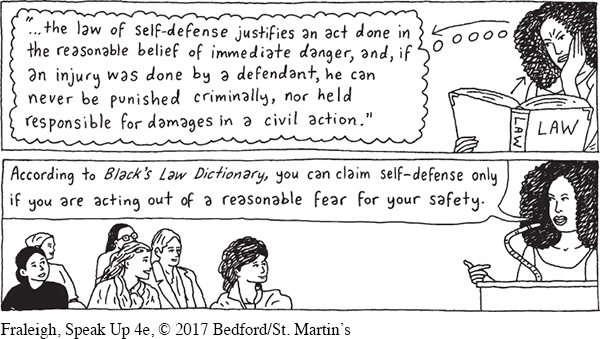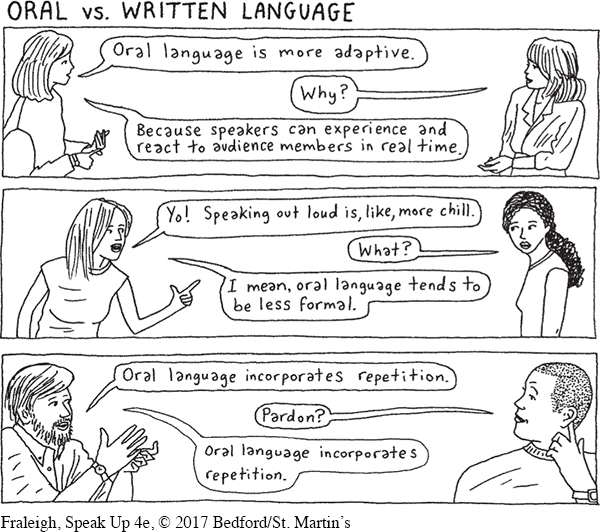Differences Between Oral and Written Language
You may have noticed that words and sentences that are spoken aloud can come across quite differently from words that you read to yourself. In a public speaking context, the difference between spoken and written language can be even more pronounced. To help you craft better language for your speeches, consider these three key differences between oral and written language:
Oral language is more adaptive. Writers seldom know exactly who will read their words or in what context. The best they can do is to take educated guesses and make language choices accordingly. When you speak before a live audience, however, you can get immediate feedback, which is virtually impossible for a writer. Thus, you can observe your audience members during your presentation, interact with them, and respond to the way they are receiving your message. Because a speech is a live, physical interaction that generates instantaneous audience feedback, you can adapt to the situation, such as by extending or simplifying an explanation if listeners seem confused or by choosing clearer or simpler language.

Page 340
Oral language tends to be less formal. Because writers have the luxury of getting their words down on paper (or on screen) and then going back to make changes, they typically use precise word choice and follow the formal rules of syntax and grammar. This careful use of language aligns well with most readers’ expectations. In most speech situations, however, language choice tends toward a somewhat less formal style. Because listeners lack the chance to go back and reread your words, you will want to use shorter and less complicated sentences. (Of course, certain speech situations—
such as political settings— require elevated sentence structure and word choice.) In addition, effective oral language is often simpler and less technically precise than written language is. Thus, consider incorporating appropriate colloquialisms, a conversational tone, and even sentence fragments into your speeches. 
Page 341
Oral language incorporates repetition. Most writing teachers and coaches advise their students to avoid repeating themselves or being redundant by covering the same ground more than once. But in speaking situations, repetition can be an especially effective tool because your listeners can’t go back and revisit your points: your words are there and then suddenly are gone. Because most audience members don’t take notes (especially outside a classroom setting), there is nothing for listeners to rely on except their own memory of your words. You can help your listeners remember your message by intentionally repeating key words and phrases throughout your presentation. If they hear certain words often enough, they will remember them.